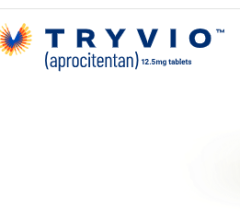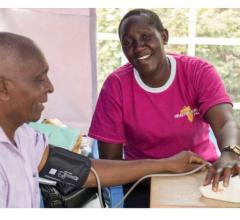
September 25, 2015 — Medisafe, an mHealth platform for medication management, announced the results of its blood pressure study, which showed app users with stage 1 or stage 2 hypertension decreased their systolic blood pressure by 17.7 and 25.3 mmHg, respectively, within 30 days. As the sole biomarker to measure hypertension and with a direct connection to clinical outcomes, blood pressure served as a surrogate for measuring medication adherence in this study.
An estimated 78 million adults in the United States have hypertension – defined by systolic levels above 140 mmHg and diastolic levels above 90 mmHg. This figure is projected to rise to 111 million in 2030, due in part to low rates of medication adherence, as only 51 percent of Americans treated for hypertension are adherent to the long-term therapy prescribed by their doctors.
Medisafe's study examined three risk profiles:
- Prehypertension (BP 120 to 139 mmHg systolic);
- Hypertension stage 1 (BP 140 to 160 mmHg systolic); and
- Hypertension stage 2 (BP above 160 mmHg systolic).
To be included in the study and assigned to a risk profile, users needed at least two readings within a risk profile. These readings were then averaged to provide a baseline. The same logic and calculation was applied for the final week of readings. Medisafe limited the analysis to users reporting readings via their "connected devices" – WiFi- or Bluetooth-enabled blood pressure cuffs automatically transmitting levels to Medisafe – to eliminate the potential for self-reporting bias.
Medisafe framed its research around three leading clinical reference points:
- According to the American Heart Association, reducing average population systolic blood pressure by 12 to 13 mmHg could reduce incidence of stroke by 37 percent, coronary heart disease by 21 percent and cardiovascular disease mortality by 25 percent;
- An annual National Institutes of Health (NIH) Report suggests that decreases in systolic blood pressure of 5 mmHg would result in an estimated 14 percent overall reduction in mortality due to stroke, a 9 percent reduction in mortality due to CHD and a 7 percent decrease in all-cause mortality; and
- The just-published, NIH-funded SPRINT study revealed that even more aggressive treatment targeting 120 mmHg systolic – as opposed to 140 mmHg – led to a 30 percent lower risk of adverse cardiovascular events and 25 percent lower risk of death.
The Medisafe study results found:
- 100 percent of stage 2 users reduced their systolic blood pressure. The mean result was a 25.3 mmHg improvement in 30 days;
- 86 percent of stage 2 users reduced their risk category (i.e., moved to hypertension stage 1 of 140 to 160, or below);
- 66 percent of stage 1 users reduced their systolic blood pressure. The mean result was a 17.7 mmHg improvement in 30 days;
- 56 percent of stage 1 users reduced their risk category (i.e., moved to prehypertension systolic of 120 to 139, or below);
- Against a hypothesis of greater than 5 mmHg decrease in systolic, users in both stages showed high statistical significance with p-values below .001;
- Users in both stages sustained lower levels, suggesting persisted adherence, for at least an additional 40 days, after which time insufficient data were available; and
- 23 percent of prehypertension and 9 percent of stage 1 users reduced their systolic blood pressure into the normal range below 120 mmHg.
Study results are consistent with Medisafe's previously announced findings that its users are 86 percent adherent versus the World Health Organization’s (WHO) estimate of 50 percent for the nation as a whole.
For more information: www.medisafe.com


 September 09, 2025
September 09, 2025 









